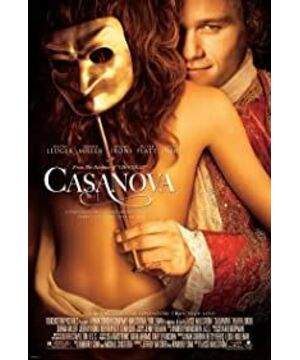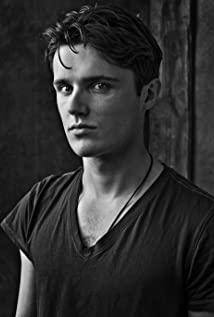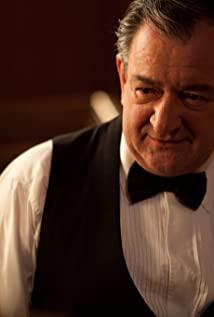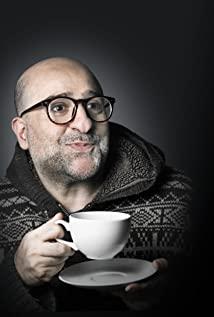Raindrops slipped slowly from the glass, and the window was filled with a lonely and vague street scene, and the oil lamp flickered in the dim room, just like a person's breathing. The little boy in the story leaned on the window sill, waiting for his mother, who had never returned home, and kept her promise that seemed to never be fulfilled.
I will return.
Then the little boy grows up, and because of the lack of childhood feelings, he degenerates into a flashy and profligate man. Casanova, the wandering prodigal son and love saint, always makes the only promises to different women, but never keeps them. For him, love is just a game and a gambling game that has been going on and spinning. He can afford to lose and win.
Until he met her.
It was still the usual day, in order to escape the punishment of the Inquisition, Casanova hurriedly broke into the lecture hall of a university. He hid in the audience seat tremblingly, with a crooked wig and an embarrassed expression on his face that was silly and trembling. The romantic and suave great love saint lost face at this moment.
But he heard Francesca's speech-
Let me show you who is bringing whom down to earth. Let me show you who is bringing whom down to earth
.
A woman is air and fire and lightness and strength. A woman is air and fire and lightness and strength
.
Like this little vessel that would rise up to heaven were it not held down by ballast-bags of sand
.
The dead weight of men with their heads full of sand.
This bag of sand represents the weight of a man with sand in his head.
Love Saint didn't listen to a few words, just showed an expression of appreciation, and had to grab the demonstration hot air balloon as she continued to flee, interrupting her imposing feminist speech. Fran glared at the man he had never met before and fell humorously at her feet, and then was dragged away by the black guards who followed him. She shrugged helplessly and said, see it, which shows that the dead weight of the man has dragged the woman who is as light as the air and flame.
The gesture of Casanova bowing to Fran's feet, and the words Fran said calmly, seemed to herald the end of their final fight.
Francesca, this somewhat masculine young woman. In the medieval patriarchal society that treated women as mindless and boring creatures, women were not allowed to read, they were not allowed to write, and they were not allowed to express their opinions. In short, women can't do everything except to be used as a tool for pleasure or inheritance at home. Incompetence is virtue, and it turns out to be common to both China and the West. This iron law entangled the necks of women in the old age is a shackle that has gone through many generations to break free.
But this strange woman is like a little flower in a crack in the wall, bravely fulfilling her ambition and living out her soul. She writes books, fights swords, reads Greek and Latin books, and disguised herself as a man and broke into university bravely to give lectures, arguing about gender equality and other philosophical issues. Although her book was denounced by religious defenders, it was sought after by almost all women.
On the other hand, Casanova, the little boy who grew up has always believed in his mother's vows in his heart. In order to wait until the day his mother returns and not be expelled from Venice, he had to seek the protection of "the daughter of a good family" through marriage. And the object of his proposal was the one whom Fran's brother had a crush on... the fate of a pair of Keren's intertwined again. Francesca put on a mask to replace her ineffective brother to fight the sword, while Casanova reluctantly replaced his useless servant. He and her did not know each other in this dawn duel. The God of Destiny arranged for them to meet again in a situation that was originally bloody but ended in a farce.
They are inseparable in swordsmanship, and then they sympathize with each other like two real warriors. Fran did not know the true identity of the great love saint next to each other, so she talked to him about his views on love and men without discerning the truth. Have you read the book of that great philosopher? She asked naturally, he is the man who understands women better. Although the great philosopher is herself, she is still very proud and earnest to tell the
man who first met in front of her—— Give me a man who is man enough to give himself just to the woman who is worth him. If that woman were me, I would love him alone and forever.
Let me meet a real man so that he can be worthy of a woman who is evenly matched with him. If that woman is me, I will always love him only.
After a conversation, at the time of departure on the pier covered with dawn, Casanova turned his head slightly and watched Fran ride away. The eyes full of appreciation showed that he had fallen in love with her. . When Fran didn't even know him in person, he had fallen in love with her talent and courage. The arrow of love shot into his heart, making the former love saint also childish and naive, and his first love was generally at a loss. I don't understand why they met, I don't understand why I love each other, I don't understand how to recognize my heartbeat, and I don't understand how to subdue the true heart of a beautiful woman.
Next, Casanova launched a whirlwind pursuit. He followed Fran (actually jealous of the fact that she had a "lover"~) and discovered the truth about her writing books under the guise of others, and then he read all her works. He even paid a visit-and sent that cute pig based on the content of her book. Fran asked the maid to tell Casanova: "My lady said that pigs are not allowed in the door, but we accepted this animal." After that, he picked up the piglet and closed the door to see off the guests-the irony is exquisite, killing no blood. , Neatly gave Casanova a disarm, just like her swordsmanship. And Casanova clearly showed an appreciative smile. He admired this smart and elegant lady so much.
They just attended each other in costumes, gracefully swirled out the mask dance, and watched the farce about Casanova's indiscriminate facts on the street together.
-If you knew him, you wouldn't condemn him so quickly.
-If you knew him, you wouldn't be so quick to condemn him.-If you knew him, you wouldn't be so quick to condemn him
. Love is not a night or a week of fanaticism. True love does not grow with the increase in the number of lovers, but will gradually wither because of this.
- If you understood women, you would not be so quick to defend him Love is not an affair of a night or a fortnight And true love does not grow with the number of lovers It wastes away....
To Outrageous , Casanova even deceived a large group of people, just to pretend to be Flanner’s fiancé who built a lard empire (the appearance is also in line with his identity). In an absurd and laughable story, they met at a ball at the Venice Carnival. Unknown Fran still thought that Casanova was her fiancé, and their wedding date was near.
-Miss, I thought I couldn't find you.
-Signorina. I was afraid I'd lost
you.-Is it like losing a pocket watch, Mr.
Papprizzio, or some other valuable possession ?-As one might lose a pocket watch, Signor Papprizzio, or some other valuable possession ?
-I know that no one can own you, but as the guardian of your future life journey, what I hope is to show you the world you have never known. Let's start from a place closer to heaven.
-I know that no man will ever own you. But to be your defender on the road you travel, to show you the world as you've never seen it, for that I hold my hopes. Let's start by taking one step closer to heaven.
Fran believed her for granted, and was immersed in the sweetness and beauty of love and reverence for future marriages-the image played by Casanova is the ideal lover she longs for. All she wants is a lover who knows respect, equality and love, and then she will cherish each other's feelings and stay the same for life. The two took a hot air balloon to the splendid night sky with blooming fireworks, but Fran discovered the cruel truth in the intoxicating night scene-it turned out that the man who pursued her passionately was not someone else, who was known for playing with women. The love saint, Casanova, who she lashed out in the book. Feeling betrayed, angry and heartbroken, she personally smashed her own dream floating in the air, the flame is as light as the air, and the two fell back to the ground.
The plot suddenly turned down here, and people couldn't help but worry about how the relationship between the two would end. The two had just broken free from the shackles of the hot air balloon, and the Inquisition officials followed one after another to hunt down the prodigal Casanova and the author who bewitched the world. To Fran's surprise, Casanova stood up to protect her, determined to sacrifice herself, and built her reputation as a heresy writer.
She finally realized at this moment that he would rather give up his life for her and for true love. No matter how hypocritical and profligate he used to be, that has become the past. At the moment, he really loves her.
The brave Fran is determined to be like Portia in Shakespeare's "The Merchant of Venice", dressed as a man and went to court to save her lover.
-Francesca.
-Francesca.
-Do you really think I will just watch you die for me?
-Do you really think I'd let you die for me?
They finally put aside the burden of their past reputations and secular stereotypes, and saw the truth of love. If you can't live together, then at least go to the underworld together.
At the end of the film, Casanova's mother finally came back to the court and rescued a pair of lovers on the execution ground. After the thrilling and jesting escape, it was like a comedy ending in Shakespeare's pen. All the bad guys who should have fallen into the river fell into the river, and all the people who should get married belonged to each other. Everything is complete, humorous and grand.
I think of the two love maxims that Casanova taught to Fran's brother:
If you want to be loved, you must have capital. This is the first rule. The second is to make flames, not moths that fight fire.
If you want to be loved, you have to be worth loving. That's the first rule. And second, be the flame, not the moth.
Although Fran is not the most beautiful girl, she is smart, wise and humorous, and of course she is also loved Capital.
Thinking of the silver-gray rain curtain woven on the sea when the film was about to end, Fran smiled and stretched out her hand, as if asking the former love saint to offer her a kiss. But when Casanova lowered her head to give a kiss, she pulled him to her side, in front of the sky, in front of the sea, in front of a whole river of boats and pedestrians, and she took the initiative to print affectionate and affectionate expressions on his lips. A long kiss. Such a natural coquettishness will naturally make the prodigal son look back, willingly to fall in love with her charm and smile.
As for the love saint Casanova, he made a moth to the fire in this love war in which he bet on his own life, and finally embraced the beauty and won the contented love.
What should one pursue in life? Was it really that difficult from one end to the other? The prodigal son was so badly injured that he put on a mask of abusive affection. In fact, he always wanted to find true love, as he always said in books and movies. I really like the settings in the movie-even though Casanova is used to playing, my heart still needs to be subdued. The "notorious" Casanova in history has never been so romantic. He retired in his prime and became a small actor in a small troupe with his beloved, and lived happily and simply. I like the smile he will always bloom under the sun and the green trees at last, no matter if he plays the clown, Romeo, or the knight who is a knight. Always remember his bright and young smile in the sun. And remember that love is clear and free.
The story begins like a diary full of memories. Dim light. quill. Sheet music. books. wrinkle. sigh. The old age and the lingering regret. That is also the memoir of the hero, or the hero's stand-in.
In the music of the Middle Ages, the lazy and leisurely Gondola rides on the canal, parasols, grand masquerades, gorgeous palaces and churches, freedom, fireworks, hot air balloons, and Venice’s most famous carnival. It is a metaphor about love.
The tragicomedy of love is performed over and over on the stage, and these dramas themselves, just in life, in the form of no script, repeat and continue over and over again.
Attachment: Casanova/Casanova Movie Dialogue Selection (Chinese and English)
http://rainbowrunner.blogbus.com/logs/33034029.html
View more about Casanova reviews











